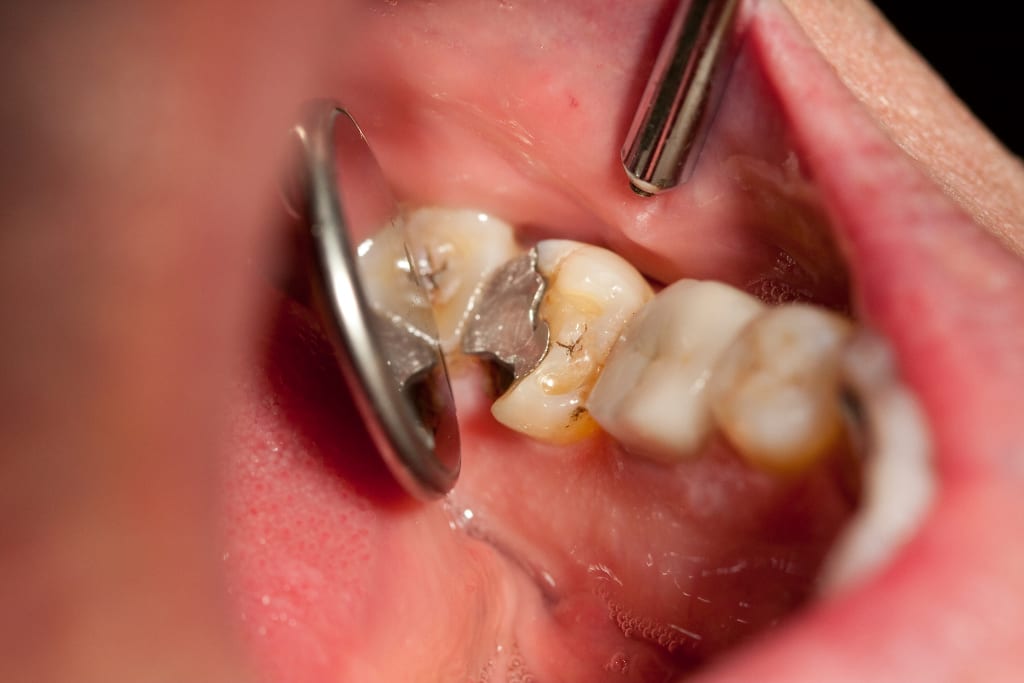Have you ever woken up from sleep because of extreme tooth pain? You wake up and realize there is no way you can visit a dentist and will have to wait for several hours. If the answer to that question is yes, you must be desperately seeking a solution in the interim.
In this blog, we will talk about commonly occurring dental emergencies that need a dentist’s immediate attention and what you can do in the interim.
What Is Dental Emergency?
A dental emergency is a broad term. While some of these can be treated in time, some require urgent dentist attention. If the condition isn’t treated, you may be in constant pain and may even lose a tooth. Your oral cavity issues will not only compromise your oral health but also have devastating effects on your overall well-being.
Is Your Dental Emergency Urgent?
Many dental emergencies can be managed by you temporarily, but in most cases require immediate attention. Some of the most commonly occurring dental emergencies which require immediate attention are:

Tooth Fracture
You may have tripped and fallen face first. You notice your tooth has chipped, and there is excruciating pain. In a worst-case scenario, your entire tooth or teeth have come out of the socket, and it won’t stop bleeding (prevalent in children). Such injuries require urgent care as delay may lead to loss of tooth or teeth. We have emergency contacts if anything like this happens during holidays or when the office is generally closed.
However, you can take some over-the-counter painkillers to manage the pain until you reach the dental office. If your tooth has come out, store it in milk if available or water and make an appointment in the next few hours. We will try our best to reimplant the tooth back, so you don’t end up losing your tooth.
Tooth Pain
Tooth pain or toothache is the most common reason people visit a dentist. Dental caries are the most important cause of dental pain and are notorious and spreads before you realize it. It leads to excruciating pain, which worsens when you lie down. Pain radiates to the entire jaw, and it becomes tender. It’s nighttime; the pain is unbearable, and dental offices won’t open until morning. If you are in this situation, your best bet is to rush to your nearby pharmacy and take over-the-counter pain medication. Warm salt water gargles will also help manage the pain until you visit a dental office. You may use cold compression in the area, which will help alleviate your pain in the meantime before you schedule an urgent dental appointment. However, it is a must to note that these are just temporary solutions, and a visit to the dentist is a must to get a permanent solution and prevent further problems.
Dental Abscess
Dental caries can progress to involve surrounding tooth structure and lead to severe infection, leading to the formation of pus, eventually an abscess. Abscesses can progress and may involve the jaw spaces and lead to threatening situations like Ludwig’s angina. It can be accompanied by facial swelling and tenderness of the involved area. Therefore, it is essential not to ignore this and get this treated before it progresses to a full-blown infective stage. Dental abscesses have to be drained and treated with antibiotics for full resolution, which we dentists will provide.
Jaw Fracture
Fractures of the jawbone are common. The wounds are debrided, dressed, and fractured segments are brought back to their correct position and fixed. Jaw fractures need immediate care and cannot be delayed.
Bleeding Gums
Bleeding from gums may be a result of gum diseases like gingivitis and periodontitis. It can also be a result of facial trauma. Whatever may be the reason, it needs a thorough check-up. You may need deep cleaning, combined with more involved dental procedures and medications for it to resolve.
Some other dental emergencies which need the attention of a dentist are –
Tooth Sensitivity
Do you experience intense painful sensations while eating hot, cold, or sweet foods and liquids? If yes, then you might be suffering from dental sensitivity. Dental sensitivity can be manageable by over-the-counter medicated toothpaste for sensitive teeth. However, this might not be a permanent solution and may require dental procedures like crowns, fillings, or root canal treatment to treat it. Ignoring the initial symptoms may lead to more aggressive treatment, which necessitates the need to visit a dentist at the earliest to make sure your pearly whites are healthy, and you can enjoy food without pain.
Losing A Dental Crown Or Filling
Losing a dental crown predisposes your pre-weakened teeth to forces it cannot sustain. This increases the chances of tooth fracture during daily activities like chewing. If your dental crown has dislodged, save it and make an appointment with your dentist at the earliest to re-cement it back in place. Similarly, dental fillings are placed after caries removal to restore the lost tooth anatomy and prevent a tooth from getting further infected. Once the filling is lost, your tooth’s inner portion is exposed to the oral environment, which predisposes it to infections and, ultimately, fractures. The filling might also get displaced and get stuck in the gums, which irritates it and causes trauma. If you experience any of the above, make a dental appointment now to prevent tooth loss.
Mild Toothache
Mild toothache is a sign of pulpitis that results from dental decay. It can progress into a more severe pain in the future, requiring more complicated procedures than a simple dental filling. It can also read to loss of tooth structure and, if delayed, may lead to tooth loss. Scheduling a dental visit becomes vital to prevent any further complications.
Food Lodegment
Food gets dislodged in the crooks and crevices of the oral cavity. If this food debris is not meticulously cleaned, it becomes a breeding ground of bacteria causing dental decay. Food lodgment can be during to caries between tooth, spacing, or gum recession. Whatever may be the reason, it is imperative to get it treated to prevent extensive dental decay, gum diseases, bone loss, and eventual risk of tooth loss.
Oral health is a mirror to our overall health. A disease-free mouth contributes to personal well-being, reduces the risk of systemic diseases, and increases confidence. Any oral disease should not be taken lightly as its consequences could be severe. Take care of your pearly whites because they do not grow back. If you face any of the issues mentioned above or any other dental problems, make an appointment with us, and be assured we will help you take care of your pearly whites. Stay happy, healthy, and keep smiling!
Why is visiting the dentist so important?
Visiting the dentist regularly will not only help keep your teeth and mouth healthy, but will also help keep the rest of your body healthy. Dental care is important because it:
- Helps prevent tooth decay
- Protects against periodontal (gum) disease, which can lead to tooth and bone loss
- Prevents bad breath – brushing, flossing, and seeing the dentist regularly will help reduce the amount of bacteria in your mouth that causes bad breath

